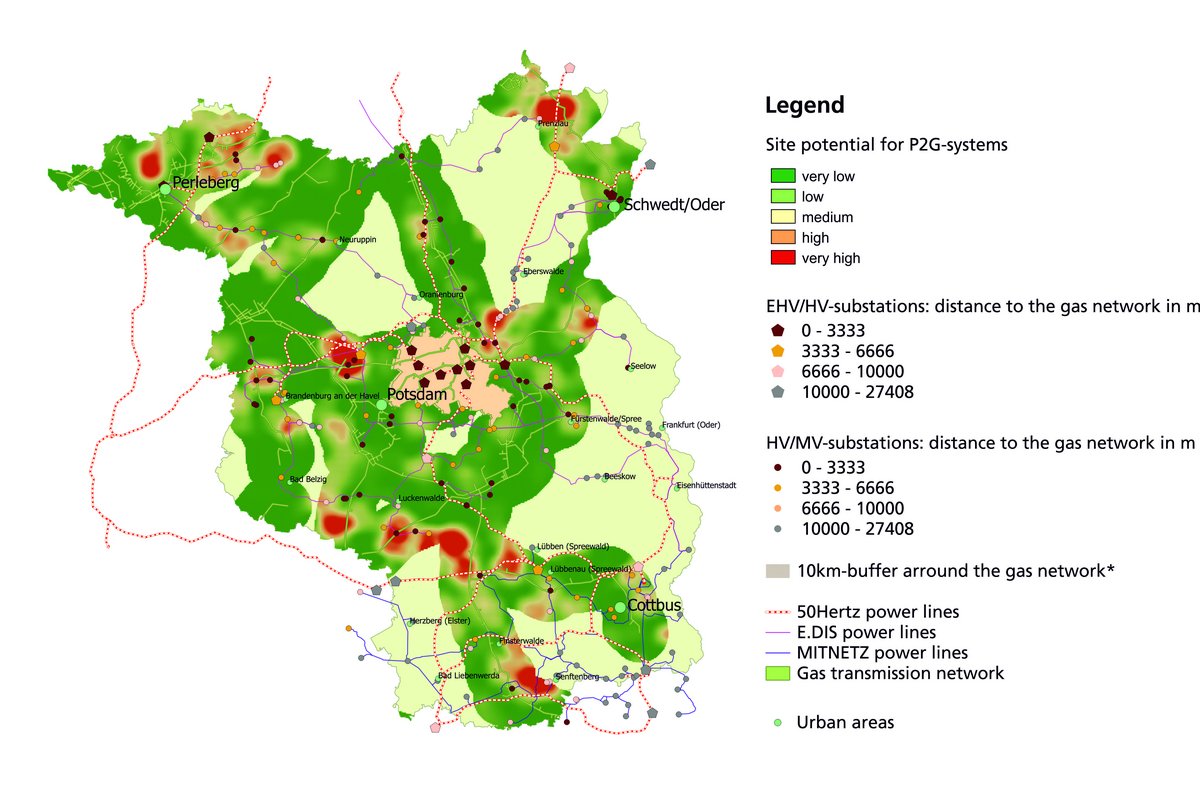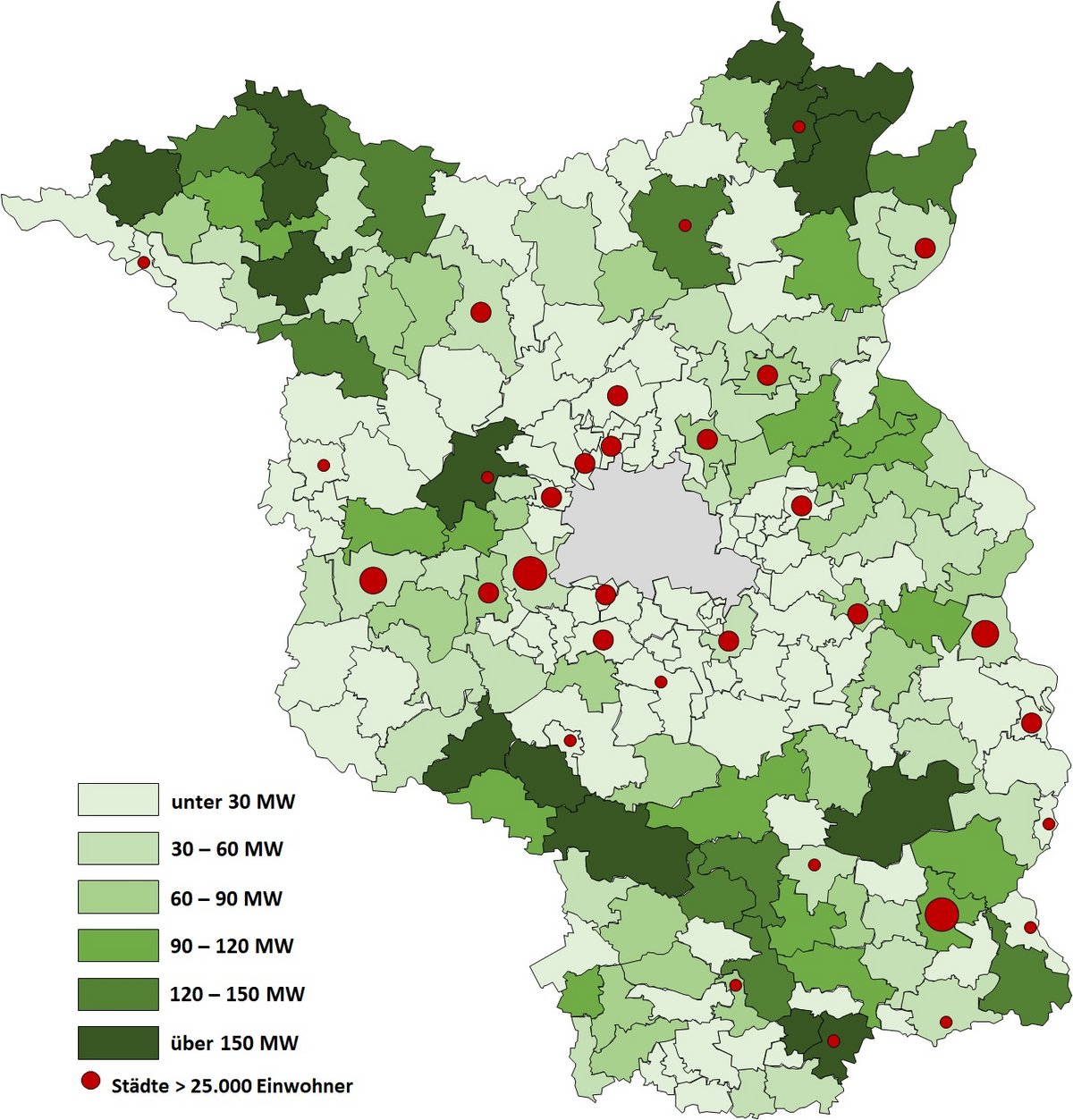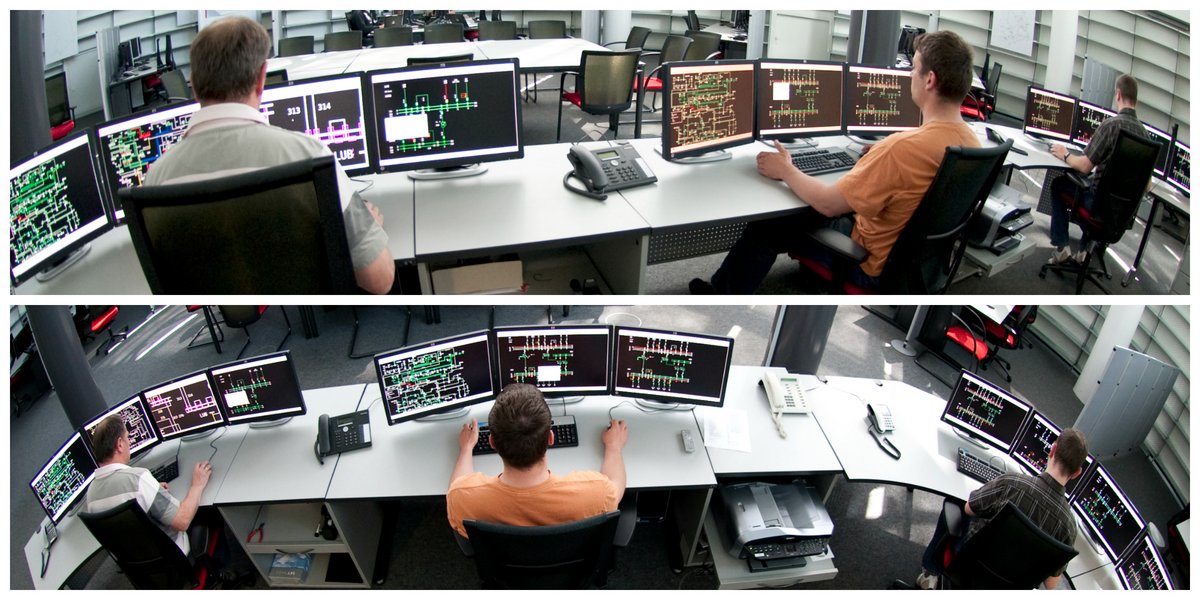Projects
The following overview represents a selection of bigger projects and studies that have been undertaken in the past years.
The current expansion of energy production from decentralized energy systems is leading to a fundamental transformation process in the energy supply system, in which the state of Brandenburg is playing a pioneering role due to its high renewable energy capacities. Increasingly, situations arise in which more renewable energy is generated than can be consumed. The study commissioned by the Ministry of Economic Affairs and Energy of the State of Brandenburg (MWE) investigates the use of these potentials in other sectors such as gas, heat and mobility. The aim is to investigate whether and how renewable energy surpluses occurring can be used in a technically and economically sensible way.
Technical survey - Sector Coupling
One sub-project of the study is a technical survey on the topic of sector coupling. It is intended to provide important findings on various aspects from the point of view of the actors involved. The results of the survey are incorporated directly into the research project.
https://www.b-tu.de/umfragen/index.php/276973?lang=de
Survey period: 19.08.2019-22.11.2019
Contact
Dipl.-Ing. Martin Bendig
+ 49 (0)355 69 4887
martin.bendig(at)b-tu.de
M.Sc. Kristian Platta
+ 49 (0)355 69 5579
kristian.platta(at)b-tu.de
Commissioned by the Ministry of Economic Affairs of Brandenburg the chair carried out a first study concerning the integration of renewables into the grids of Brandenburg from 2006 to 2008. Due to the fast development, especially concerning photovoltaic, a follow-up study became necessary in order to update the results and statements. This second study for Brandenburg was done 2009 until 2011.
The extensive development of renewable energies along with their legal integration into the energy distribution system have created new challenges to assure the save operation of electro energy systems. Therefore, an academic system simulator for research and teaching activities has been installed at LS EVH to replicate the current situation at the grid control centers which is marked by an increasing pressure concerning its operations. The project was supported by 50Hertz Transmission GmbH and the German Research Foundation (DFG).
The central part of the simulator is a grid control system with a modular grid calculation that can continuously display physical grid activities. Here, up to 14 different "grid operators" (students) can practice a joint grid operation with the help of a virtual grid.
Contact
Dr.-Ing. Klaus Pfeiffer
T +49 (0) 355 69 4035
klaus.pfeiffer(at)b-tu.de
The partners in the joint project OptNetzE – "Inclusion of adjacent energy sectors to make network operation more flexible, taking power-to-gas concepts into account" have set themselves the task of improving procedures for network operation to compensate for fluctuating generations taking into account all stakeholders and organizing them for future use. The sub-project of the BTU Cottbus-Senftenberg is integrated into the OptNetzE project in work package 4 and deals with the grid integration of renewable energies as well as with the provision of ancillary services through plannable and controllable loads. The sub-project focuses on PtG-systems and their technical and economical integration into a future energy supply system. The PtG-systems shall provide flexible loads to support grid operation in regions with high renewable energy feed-in.
The joint project project OptNetzE "Inclusion of adjacent energy sectors to make network operation more flexible, taking power-to-gas concepts into account" was funded by the Federal Ministry of Economics and Energy under the funding number 0325814C.
Contact
Dipl.-Ing. David Matzekat
T +49 (0) 355 69 5573
david.matzekat(at)b-tu.de
Further information
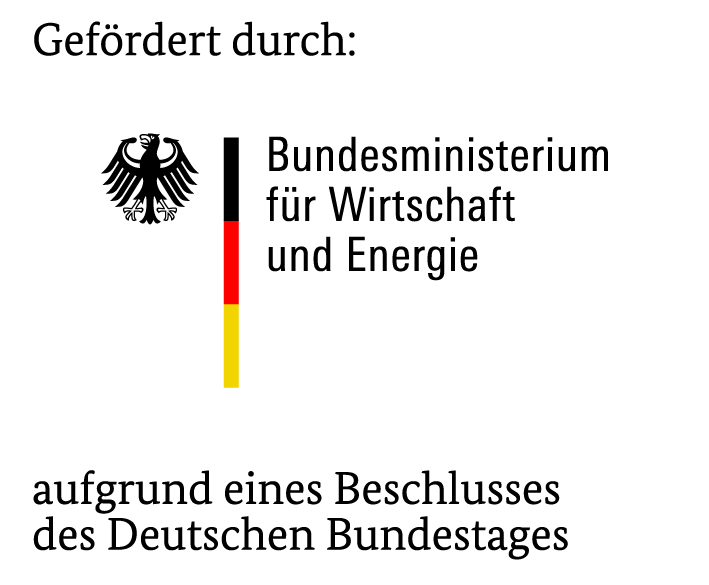
The current expansion of energy production from decentralized energy systems is leading to a fundamental transformation process in the energy supply system, in which the state of Brandenburg is playing a pioneering role due to its high renewable energy capacities. Increasingly, situations arise in which more renewable energy is generated than can be consumed. The study commissioned by the Ministry of Economic Affairs and Energy of the State of Brandenburg (MWE) investigates the use of these potentials in other sectors such as gas, heat and mobility. The aim is to investigate whether and how renewable energy surpluses occurring can be used in a technically and economically sensible way.
Technical survey - Sector Coupling
One sub-project of the study is a technical survey on the topic of sector coupling. It is intended to provide important findings on various aspects from the point of view of the actors involved. The results of the survey are incorporated directly into the research project.
https://www.b-tu.de/umfragen/index.php/276973?lang=de
Survey period: 19.08.2019-22.11.2019
Contact
Dipl.-Ing. Martin Bendig
+ 49 (0)355 69 4887
martin.bendig(at)b-tu.de
M.Sc. Kristian Platta
+ 49 (0)355 69 5579
kristian.platta(at)b-tu.de
Further information
Duration: 05/2018 - 04/2020
Further Information
Contact
Dipl.-Ing. Dirk Lehmann
T +49 (0) 355 69 4032
dirk.lehmann(at)b-tu.de
Further Information
By increasing the amount of regenerative energy units, conventional generation plants are going to be less available to the grids. Thus, renewables have to provide ancillary services (SDL) that from a technical and operational point of view are necessary, such as balancing power to maintain frequency stability or reactive power to maintain voltage. How to provide or coordinate ancillary services to ensure safe operations within the power supply?
This question is dealt with in a study that was encouraged by the Ministry for Economic Affairs and Energy (MWE) of Brandenburg and partners of the expert forum “Grid Expansion”.
Here, BTU scientists are not only looking at the SDL topic in general but are also considering the necessary regulatory framework conditions. However, the focus of their work remains on technical reviews.
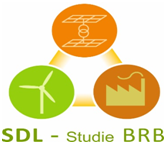
Contact
Dr.-Ing. Klaus Pfeiffer
T +49 (0) 355 69 4035
klaus.pfeiffer(at)b-tu.de

